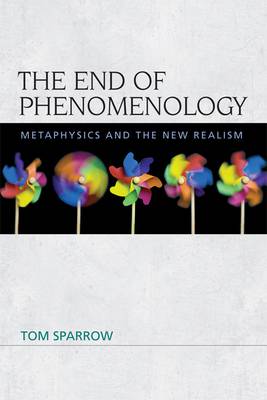
- Retrait gratuit dans votre magasin Club
- 7.000.000 titres dans notre catalogue
- Payer en toute sécurité
- Toujours un magasin près de chez vous
- Retrait gratuit dans votre magasin Club
- 7.000.0000 titres dans notre catalogue
- Payer en toute sécurité
- Toujours un magasin près de chez vous
Description
In the 20th century, phenomenology promised a method that would get philosophy 'back to the things themselves'. But phenomenology has always been haunted by the spectre of an anthropocentric antirealism. Tom Sparrow shows how, in the 21st century, speculative realism aims to do what phenomenology could not: provide a philosophical method that disengages the human-centred approach to metaphysics in order to chronicle the complex realm of nonhuman reality. Through a focused reading of the methodological statements and metaphysical commitments of key phenomenologists and speculative realists, Sparrow shows how speculative realism is replacing phenomenology as the beacon of realism in contemporary Continental philosophy. He draws on phenomenologists including Husserl, Heidegger, Merleau-Ponty and Levinas, speculative realism's original creators Graham Harman, Quentin Meillassoux, Ray Brassier and Iain Hamilton Grant and key figures in speculative realism's second wave, including Ian Bogost and Timothy Morton.
Spécifications
Parties prenantes
- Auteur(s) :
- Editeur:
Contenu
- Nombre de pages :
- 216
- Langue:
- Anglais
- Collection :
Caractéristiques
- EAN:
- 9780748684830
- Date de parution :
- 04-06-14
- Format:
- Livre broché
- Format numérique:
- Trade paperback (VS)
- Dimensions :
- 155 mm x 231 mm
- Poids :
- 385 g

Les avis
Nous publions uniquement les avis qui respectent les conditions requises. Consultez nos conditions pour les avis.






